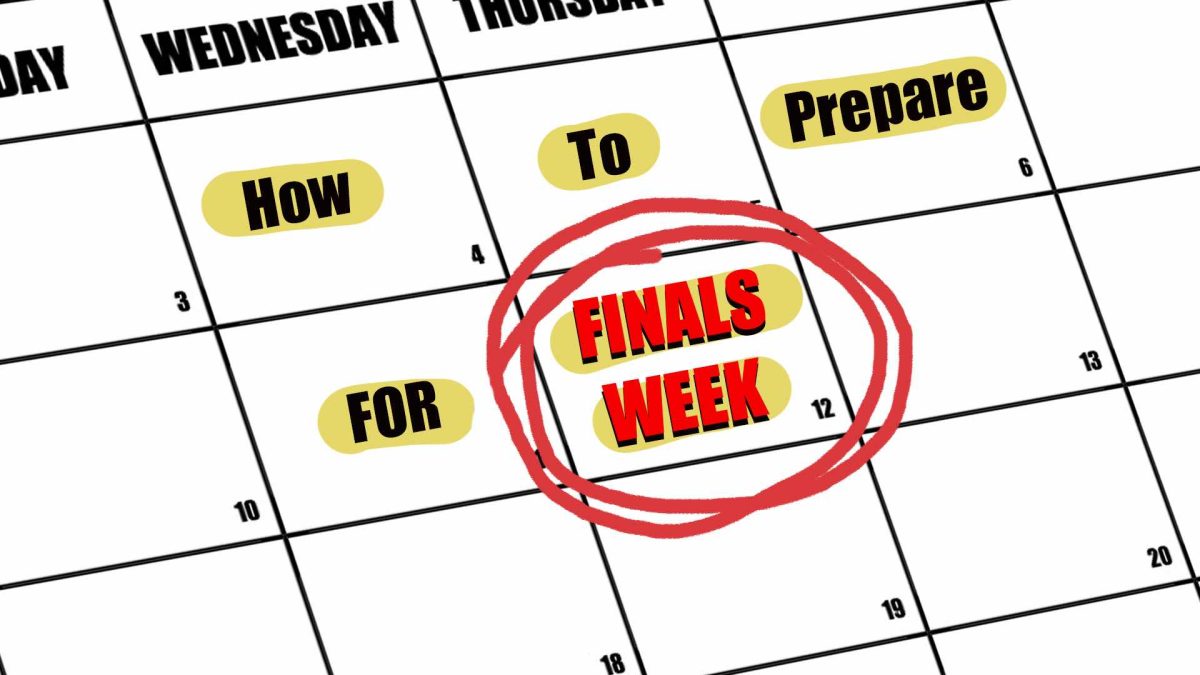Step one- Survive. Nourish your body. Make it one more day.
When someone hears the words ‘finals week’ one of the images that comes to mind is staying up until the crack of dawn studying or working on a major project. While it may seem like a good idea to stay up into the late hours of the night that’s not always true.
According to an article by The University of North Carolina 50% of college students report daytime sleepiness and 70% report insufficient sleep. With that the GPAs of students who receive nine or more hours of sleep per night have an average GPA of (3.23) while the average GPA of students who receive six hours or less of sleep have an average GPA of (2.74). Getting enough sleep is crucial for a successful finals week.
Self-care doesn’t only include sleep. Making an effort to eat healthy will also help you succeed this finals week. According to an article by American Dining Creations unhealthy food plans can cause lower grades, poor memory and concentration, lack of energy and focus and a disrupted sleep schedule.
Giving it your all during finals week is important. However, taking care of yourself is equally as important. Self-care is a key ingredient for the recipe to succeeding finals week. This is your sign to head to bed earlier and treat yourself with a good, healthy meal.
Step two- Get started. Keep going. Don’t back down.
Procrastination is much like going to the ghost. It haunts us whether we like it to or not. With finals week upon us, it is extremely important to be on top of things with big exams, papers, and projects coming due. It’s time to just sit down and get it done. Turn on some music if it helps, find a place with minimal distractions, and work on what you need to get done. Do make sure you take breaks periodically as well as give yourself time where you can lock in and do what you need to do.
Step three- Put in the effort. Pay attention to detail. Catch your mistakes.
So, your final is not an exam. Maybe it is a paper, presentation, poster, or other projects. Here are some tips to prepare and do well on any of the above. With any of these, it is important to start early. It is not wise to do any of these the night before. It takes time, effort, and it is important to read it several times. Reading it several times can make sure that you did not make any mistakes or say something you didn’t mean. It can also be helpful to read the paper out loud and give the presentation to a friend to make sure it is up to the standard it requires.
Make sure you follow the rubric or guidelines provided so you include everything that is required. When you are done with any of these, it can be beneficial to have someone look it over as well. Final papers, presentations, posters, or etc. can be just as much work if not more than studying for a final exam.
Step four- Give everything you do purpose. Never lose meaning. Don’t stop until success.
If you repeat a word enough times, it can lose its meaning. If you spend the entire night going through the same set of flashcards, you might feel like throwing your laptop out the window. As crazy an idea it might be, it’s possible to study effectively, efficiently, and without any expensive casualties. While discovering your favorite study methods can be a trial-and-error process, there are a few methods of studying that can be considered a more exact science, however.
The keys to actually remembering what you study are testing and repetition. Quizzing yourself makes your brain fully engage with your subject matter and makes the most out of your time. You don’t have to stick to flashcards or Quizlet to test yourself, either. You can create your own study guide, rework old practice problems, or draw your own concept maps or diagrams. Repetition makes sure that the information will still be there the next morning. Don’t just stop repeating once you get something right. Try to aim for correct recall 3 times before you consider something “learned.” That extra repetition will come in handy; I promise.
Step five- Celebrate. Relax. Go home.









